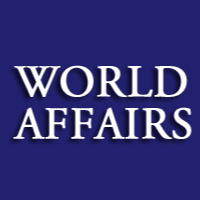State Department Opposes New Iran Sanctions

“We think that this is a time for a pause, to see if these negotiations can gain traction,” said Under Secretary of State Wendy Sherman to Voice of America on Friday, explaining why she wants Congress to defer passing additional sanctions on the Islamic Republic of Iran. The Senate Banking Committee has been considering a measure passed by the House in July to impose even stricter punitive measures on the country for its refusal to stop the enrichment of uranium, as demanded by the UN Security Council.
At the moment, the P5+1, the five permanent members of the Security Council and Germany, are negotiating with the government of newly installed Iranian President Hassan Rouhani. The next session of the talks is scheduled for early next month in Geneva.
“I thought it was a very positive statement,” said Reza Marashi of the National Iranian American Council, referring to Sherman’s call to Congress. The State Department evidently believes the Iranians will reciprocate a gesture of friendship, as do others. “A train doesn’t really run on two tracks,” Marashi, a former State Department official, explained. “If you’re pursuing a policy that moves down the sanctions track, how can you really truly be pursing diplomacy as well?”
Actually, diplomacy often works best when crippling sanctions are in place and are being tightened. Americans are particularly susceptible to the appealing notion that all others return gestures of friendship, but that’s not always the case. We get what we want when general secretaries, dictators, and assorted other autocrats have no choice but to agree to our terms.
And we fail when we, as a show of good will, prematurely lift coercive measures. In 2005, the Bush administration effectively cut North Korea off from the global financial system by designating Banco Delta Asia, the Macau bank the regime used, a “primary money laundering concern” under the Patriot Act. The measure was so successful that Pyongyang, in order to transmit money abroad, had to turn its diplomats into mules by putting cash into their suitcases.
The Kim regime then began what has been termed a “charm offensive,” which worked its wonders on Washington. In 2007, State Department negotiators convinced the Bush White House to lift the designation so as to coax the North Koreans to give up their nuclear weapons program. Once the designation was lifted, however, Pyongyang pocketed the concession and shortly after walked away from the six-party denuclearization negotiations for good.
One of the reasons the Iranians are now talking in Geneva is that President Rouhani was elected in June to improve the economy and he knows he cannot do that without the international community removing sanctions. He’s undoubtedly right: American and European measures imposed in 2011 are said to have reduced Tehran’s oil exports by more than a million barrels of day.
The Obama administration opposed the enactment of the 2011 measures because it wanted to engage the Islamic Republic, and now it is pressing the Senate Banking Committee not to pass a sanctions bill. Some commentators privately say the president wants to be remembered as the one who brought the Iranians into the mainstream of the international community, just as Nixon convinced the Chinese to reconcile themselves to the world. That would be a worthy achievement to be sure, but the best way to accomplish that is to convince the ayatollahs that they cannot continue to defy the UN by continuing to enrich uranium.
Mr. Obama should remember how the multi-decade struggle with Moscow concluded. Yes, there were handshakes all around in the early 1990s, but they were preceded by Ronald Reagan’s steely determination to end the Soviet Union, not to come to terms with it. As the Gipper said to Richard Allen in 1977, “My theory of the Cold War is that we win and they lose.”
OG Image:
Gordon G. Chang's Blog
- Gordon G. Chang's profile
- 52 followers



